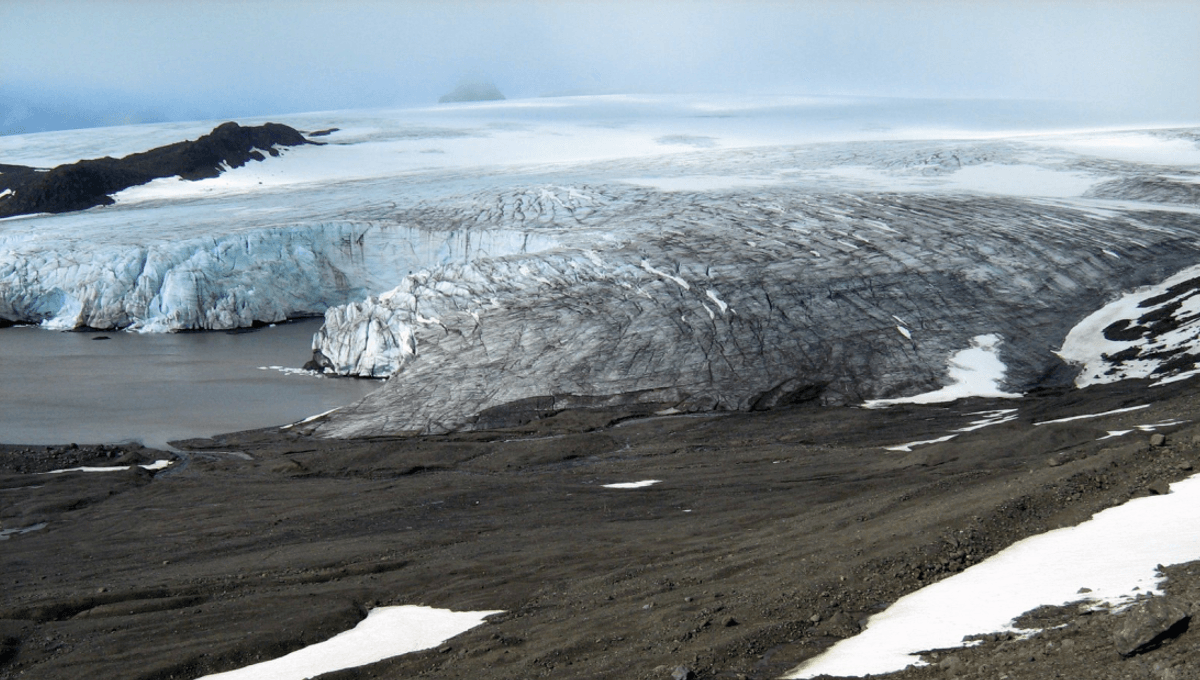
On July 26, 1959, British scientist Dennis Bell was conducting a geological survey with surveyor Jeff Stokes, meteorologist Ken Gibson, and geologist Colin Barton with the aid of two dog sleds. When the sled dogs began to struggle, Bell went ahead to encourage them forward, but fell through a hole in a crevasse bridge. Efforts were made to rescue Bell, who had survived the initial fall, but he later died and his body was never able to be retrieved. Now, 66 years on, the British Antarctic Survey has announced that they have discovered Dennis Bell’s remains among rocks exposed by the receding Ecology Glacier.
The rest of this article is behind a paywall. Please sign in or subscribe to access the full content.
“The confirmation of the remains found on Ecology Glacier as those of Dennis ‘Tink’ Bell is both a poignant and profound moment for all of us at British Antarctic Survey,” said Director of the British Antarctic Survey, Professor Dame Jane Francis, in a release.
“Dennis was one of the many brave FIDS personnel who contributed to the early science and exploration of Antarctica under extraordinarily harsh conditions. Even though he was lost in 1959, his memory lived on among colleagues and in the legacy of polar research. This discovery brings closure to a decades-long mystery and reminds us of the human stories embedded in the history of Antarctic science.”
Bell’s remains were first discovered on January 19, 2025, by personnel from the Henryk Arctowski Polish Antarctic Station on King George Island. The team gathered some of what they had found and took it back to the Arctowski Station, launching an investigation between February 9 and 13, 2025. The investigations revealed more bone fragments alongside over 200 personal items, including radio equipment, a flashlight, and an inscribed wristwatch.
The human remains were then sent for DNA testing against samples from Dennis Bell’s surviving siblings, David Bell and Valerie Kelly. The results indicated that the remains belonged to someone who was “more than one billion times” more likely to be related to them than not, indicating that 65 years after his fatal accident, Dennis Bell’s remains had finally been recovered.
The details of his disappearance were shared by a previous director of the British Antarctic Survey, Sir Vivian Fuchs, who in his book Of Ice and Men wrote:
Peering into the depths, Stokes called repeatedly and was greatly relieved to be answered. Lowering a rope almost a hundred feet, he told Bell to tie himself on. As he could not haul up the weight, he hitched his end of the rope to the team. The dogs took the strain and began to pull. Now it was easy and everything was going well. But Bell had tied the rope through his belt instead of round his body, perhaps because of the angle at which he lay in the crevasse. As he reached the top his body jammed against the lip, the belt broke, and down he went again. This time there was no reply to Stoke’s calls.
Bell’s brother, David, who now lives in Australia, said of the news, “When my sister Valerie and I were notified that our brother Dennis had been found after 66 years we were shocked and amazed. The British Antarctic Survey and British Antarctic Monument Trust have been a tremendous support and together with the sensitivity of the Polish team in bringing him home have helped us come to terms with the tragic loss of our brilliant brother.”
Source Link: Remains Of Antarctic Researcher Lost During 1959 Expedition Found After 65 Years